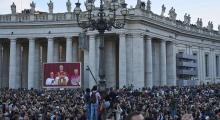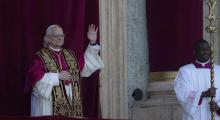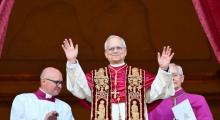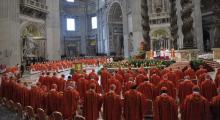Issued by the Catholic Center for Studies and Media - Jordan. Editor-in-chief Fr. Rif'at Bader - موقع أبونا abouna.org
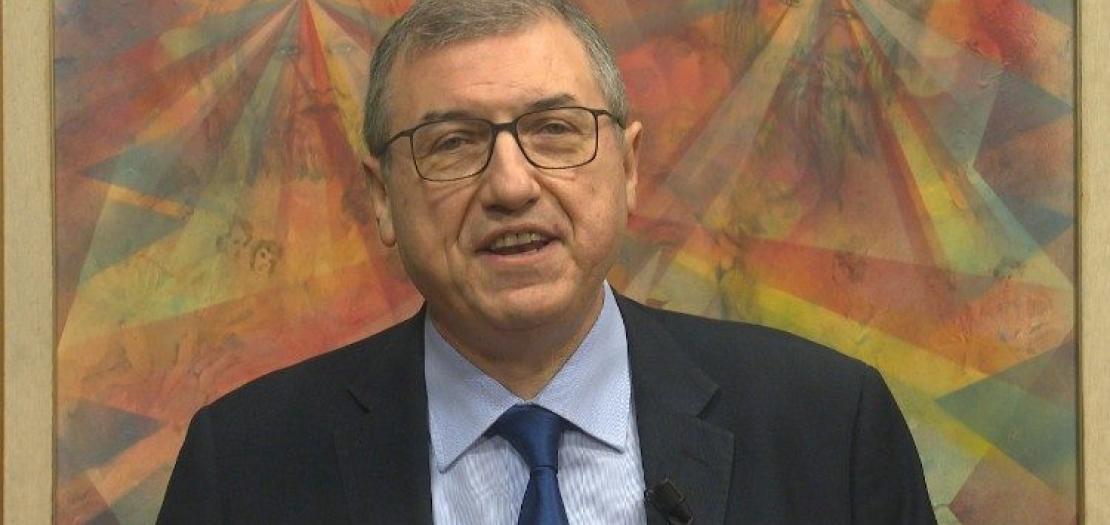
The new Fundamental Law of Vatican City State, issued by Pope Francis, responds to the need to keep up with the reforms promoted during his Pontificate in the perspective of a new missionary thrust of the entire Church. This, in brief, is what Vincenzo Buonomo, Professor of International Law and Rector of the Pontifical Lateran University, explains in an interview with Vatican Radio. In particular, he notes the indications regarding the composition of the Pontifical Commission, which will no longer be formed only by Cardinals but will also be open to laymen and women.
Professor Buonomo, how does the new Vatican 'Constitution' fit into the framework of the reforms of Pope Francis' pontificate?
It fits into a framework of reforms that - as Pope Francis has always said - does not intend to make abstract modifications and above all, always takes into account what has been done before, and that aims to enhance certain important aspects that are necessary today. Also in the case of Vatican City State, it becomes necessary not only to appeal to a tradition that began in 1929, but also to understand the continuous developments to which the State itself is subjected including in relation to realities that are external to the State itself. Thus it becomes necessary to have a new Fundamental Law, that is, norms that can regulate the functioning of the State and also the operation of the other laws that exist within the State.
With this reform, the principle of adapting Vatican norms to international commitments made by the Holy See for Vatican City State becomes part of the Fundamental Law.
I believe that the instrumental function of the State is also part of this. When Pius XI defined this function as important in order to guarantee freedom and independence to the Apostolic See, and therefore of a territory, back then as it is today, it became and becomes necessary to be able to operate without interference from outside. This does not mean not accepting what is proposed at the international level for the regulation of so many aspects. And in recent years the Holy See and Vatican City State have increasingly adapted to new regulations and, above all, to those regulations that can give the State the necessary impetus to guarantee the missionary activity of the State, because this is an aspect that must be strongly emphasized and that the Law takes up: that is, the missionary activity of the State because it is directly functional to the Magisterium of the Church and to the munus of the Supreme Pontiff. The international aspects are also incorporated with respect to the competencies of the Governorate. The Law defines some exclusive tasks of the Governorate that are tasks that it alone can exercise also with reference to international rules. Security, environmental protection, economic activities, protection of the artistic heritage, and connectivity for example, in terms of networks both from a technical and managerial point of view, today are determined and are linked to regulations or rules of conduct at an international level. Thus there is this desire to be able to standardize and connect to a reality that is a global space in which Vatican City State is embedded.
How do the Pontifical Commission and the other organs of the State change?
A reading of the Law immediately leads us to identify that there has been a change in terminology. The word 'powers' is used, referring only to the Supreme Pontiff. In contrast, the other organs of the State exercise 'functions': legislative, executive and judicial functions. I believe this is the first novelty that the Law introduces. Comparing it with what is currently in force, the Commission is no longer just a commission of cardinals, but alongside the Cardinals, there can be other members appointed by the Pope: therefore every member of God's people, in their different status and genders, can take part in it. Furthermore, the Commission is given the exclusive task of authentically interpreting the laws of the State. A third novelty is the fact that the Commission is assisted by State Councillors, but they now form a special College, hence a collegial body that is chaired by the General Councillor of the State. This is a novelty. With regard to the function of the president of the Governorate, it is no longer only executive but it also has a control function and is the bridge between the Pontifical Commission and the Governorate. Thus, it is the direct link for the issues that are most relevant and important for the life of the State: its President is the direct link with the Holy Father.
In the Fundamental Law there is now a precise regulation of the Vatican's budget and balance sheet.
The path indicated by Pope Francis is very simple but it is a path that requires sharing. He speaks of clarification, of transparency, of correctness in economic activities. So now, the new Law provides for a State budget that is no longer just the budget that was presented annually by the Governorate but is linked to the criteria of international accounting and planning. In fact, there is talk in the Law of three-year planning of the State budget. And I believe this is a step forward because of a rationalization of the use of resources and their functions in terms of both allocation and utilization. At the same time, an internal mechanism is introduced within the State whose task is to carry out the so-called control and audit, which will then be harmonized with other forms of control that exist in the context of the reality of the Holy See.



